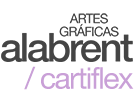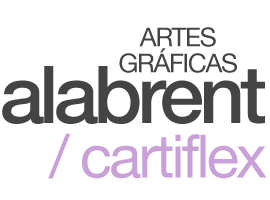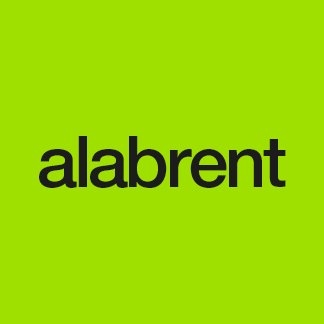Redacción Alabrent
It was while studying Egyptology at the University of Warsaw that Malengowski first encountered the prepress process, at that time for offset printing. “A lot of an Egyptologist’s work involves copying ancient writing, such as hieroglyphics, and I learned how to use various types of computer software to do that, so in a way it’s related to what I do now.” Hooked on prepress, he then worked for various flexographic prepress companies until, confident that he could provide a higher quality of customer service, he set up Fleksograf studio prepress on his own in 2001. Within a year, the company had five staff and has since grown to two sites with 35 people who provide a full range of high-caliber prepress services, including approximately 10,000m2 of flexo plates per year, to a variety of customers across Europe in markets such as food and hygiene.Malengowski says, “Everything we’ve achieved so far has been through innovative thinking, hard work, an uncompromising focus on quality and our knowledge of flexographic printing. When I started in the industry, there were at most four-color machines and plates were made from rubber – there weren’t any photopolymers available back then.”
Nothing but the best
“With Fleksograf studio prepress, I wanted to deal with customers that produce high quality jobs and, to do that, we had to be able to offer them the highest quality plates available in Poland. This had to be complemented by excellent customer service, which my exceptional team has been able to provide since day one. Our customers come to us for two reasons: first, for our expertise in wide-web flexo printing, and second because the percentage of failed prints from using KODAK FLEXCEL NX plates from Miraclon is so low – only about 1% – a great production win for them.”
To ensure that Fleksograf studio prepress delivers on its promise of outstanding quality, Malengowski has also been very selective about the prepress equipment the company uses. “Our approach is a bit different,” he says. “We focus exclusively on FLEXCEL NX and, more recently, FLEXCEL NX Ultra plates. And, because we have a plate-making solution that is near perfect, we don’t see any reason to offer customers anything else. The fact that we use these solutions, together with our knowledge and experience of flexo and FLEXCEL NX, are important reasons for our customers to work with us.”
Fleksograf studio prepress initially invested in the FLEXCEL NX System in 2010 as a single replacement technology that offered the respective quality and stability of the combined KODAK ThermoFlex and analogue technologies previously in place.
“At that time, I already had 10 years of flexographic experience,” continues Malengowski, “so once I realized that FLEXCEL NX combined the consistency of dots with high print quality, I was convinced that it was a breakthrough technology and that it was the way to go. It was nevertheless quite a risky move because, at that time, laminating plates with TIL was controversial in the Polish flexographic market. However, I can now say that the decision was a good one; after many years of the Polish market being dominated by other players, our clients finally got what they’d been waiting for – stable plates with true one-to-one flat top dot reproduction, delivering excellent quality and on-press consistency.”
The best got better
Having enjoyed great success with the FLEXCEL NX System, when Malengowski heard that Kodak’s Flexographic Division – now the independent company, Miraclon – was going to demonstrate at drupa 2016 a new plate-making solution that delivered the same transformational benefits as FLEXCEL NX, but in a high-speed, solvent-free, VOC-free environment, he was keen to see it for himself.
“From the very first look at the printouts,” he says, “we knew that it was a game-changing and universal solution that would be perfect for printing both on foil and cardboard. And using an aqueous-based, VOC-free process, it also fulfilled the requirement of our investment plans – and of our motto ‘Be eco, choose water’ – for an environmentally friendly system.”
On that basis, he started talks in 2018 about the installation of a beta system, which – “thanks to the commitment of Grant Blewett and Jacek Gali ski” – was delivered in 2019. Malengowski has been impressed with the results: “We’ve also found that FLEXCEL NX Ultra plates deliver the multiple benefits, including excellent print quality, on-press stability and consistency, our customers have become accustomed to. On quality, we even have a customer that is using FLEXCEL NX Ultra plates to print 175 lpi or even 200 lpi. They also now often produce certain jobs using flexo that they previously had to print gravure”.
“It’s also worth emphasizing that dots are reproduced one-to-one, which allows for comparable proofing and the actual results achieved on a flexographic press. When using the NX Ultra plates, the optical density of the ink is higher, so the color is stronger. Our customers can therefore use inks with a lower concentration of pigment, which are less expensive. And the aniloxes used transfer-less ink, which is also more cost-effective. I’ve never noticed any problems with, for example, clients ordering additional plates based on an old design – they just mount them onto the press and seamlessly reproduce the job.
“NX Ultra also provides excellent ink transfer and the plates don’t need to be washed during a print run. And plate production time is much shorter with NX Ultra – the time it takes from the very beginning of the process to the point at which the plate is ready for printing is only about 50 minutes.”
With regards to the “eco-benefits” that the FLEXCEL NX Ultra Solution offer, Malengowski feels that, while the pandemic has temporarily reduced the emphasis on the environment, the focus on preserving the planet will return stronger than before. “That’s why”, he says, “we’re concentrating on water washable plates, a water-based process to better protect the environment. By using the water-based process, we’re improving the working environment of our employees by getting rid of solvent odors and emissions.”
When quality counts
Just as the pandemic has affected all businesses, Fleksograf studio prepress has also had to adjust to its impact as Malengowski remarks, “The situation has changed quite significantly. At the beginning, we managed to retain the continuity of our work and were able to work in shifts. But with the increase in cases of COVID-19, we had to come up with a different solution and established a system, via a special link with our company server, to allow the people, who can, to work remotely from home.”
Nevertheless, he remains upbeat about the future of Fleksograf studio prepress, “As it has done to date, providing high quality services is what drives us from the first moment of contact with a customer. Our most important goal is to ensure that our clients are satisfied not only with our products, but also with our engagement and support. To achieve that, through our ongoing use of FLEXCEL NX and FLEXCEL NX Ultra, we’ll keep concentrating on making the flexo plate production process and all contact with clients as environmentally friendly as possible. We’ll also focus on making remote working – both in terms of establishing foreign branches of Fleksograf studio prepress as well as by cooperating with other companies via the internet – even more efficient for the company. And in doing so, we’ll continue to demonstrate to our customers that when you want the best, that’s when quality really counts.”



